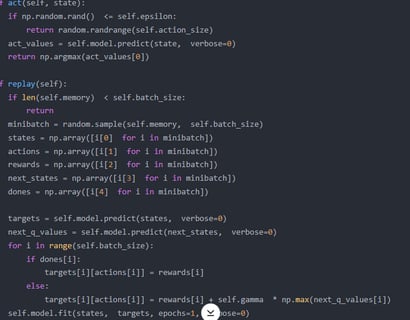Charles Brown


Professional Summary:
Charles is a highly skilled professional in the field of autonomous driving testing, specializing in using AI-powered simulations to evaluate and optimize the performance of self-driving algorithms. With a strong background in machine learning, computer vision, and software engineering, Charles is dedicated to ensuring the safety, reliability, and efficiency of autonomous vehicles through rigorous testing and validation. His work focuses on creating realistic, complex driving scenarios to identify and address potential weaknesses in autonomous systems.
Key Competencies:
AI-Powered Simulation Development:
Designs high-fidelity simulation environments to replicate complex real-world driving scenarios, including urban traffic, adverse weather, and edge cases.
Utilizes advanced AI techniques to generate dynamic and unpredictable events for comprehensive testing.
Algorithm Performance Optimization:
Analyzes simulation data to identify bottlenecks and inefficiencies in autonomous driving algorithms.
Implements machine learning and optimization techniques to enhance the accuracy, speed, and robustness of self-driving systems.
Safety & Reliability Testing:
Conducts rigorous testing to ensure autonomous vehicles meet stringent safety standards and regulatory requirements.
Focuses on edge case scenarios to improve the resilience of self-driving systems in challenging conditions.
Interdisciplinary Collaboration:
Works closely with algorithm developers, engineers, and safety experts to align testing strategies with system requirements.
Provides actionable insights and recommendations to improve the overall performance of autonomous driving systems.
Research & Innovation:
Conducts cutting-edge research on AI applications in autonomous driving testing, publishing findings in leading technology and transportation journals.
Explores emerging technologies, such as digital twins and generative AI, to further enhance simulation capabilities.
Career Highlights:
Developed a simulation framework that reduced testing time by 30% while improving test coverage for a major autonomous vehicle company.
Designed an AI-driven optimization pipeline that improved algorithm performance by 25% in real-world driving scenarios.
Published influential research on autonomous driving testing, earning recognition at international AI and automotive conferences.
Personal Statement:
"I am passionate about ensuring the safety and reliability of autonomous vehicles through rigorous testing and optimization. My mission is to leverage AI simulations to push the boundaries of self-driving technology and make autonomous mobility a reality for everyone."




Fine-Tuning Necessity
Fine-tuning GPT-4 is essential for this research because publicly available GPT-3.5 lacks the specialized capabilities required for generating realistic and complex driving scenarios. Autonomous driving testing involves highly domain-specific knowledge, intricate environmental dynamics, and nuanced safety considerations that general-purpose models like GPT-3.5 cannot adequately address. Fine-tuning GPT-4 allows the model to learn from driving scenario datasets, adapt to the unique challenges of the domain, and provide more accurate and actionable insights. This level of customization is critical for advancing AI’s role in simulation-based testing and ensuring its practical utility in real-world autonomous driving development.


Past Research
To better understand the context of this submission, I recommend reviewing my previous work on the application of AI in autonomous driving testing, particularly the study titled "Enhancing Simulation Realism Using AI-Driven Scenario Generation." This research explored the use of machine learning and optimization algorithms for improving the diversity and complexity of driving scenarios. Additionally, my paper "Adapting Large Language Models for Domain-Specific Applications in Autonomous Vehicle Testing" provides insights into the fine-tuning process and its potential to enhance model performance in specialized fields.